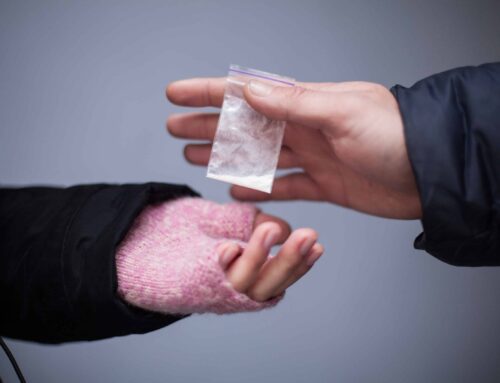Watching someone you love spiraling out of control is one of life’s most heartwrenching experiences. It’s easy to feel helpless, hopeless, and overwhelmed by the weight of the situation. But don’t lose heart — you can make a difference and you have more power than you think.
Talking to a loved one about their addiction is never easy — but it’s sometimes necessary.
In this article, Achieve Wellness and Recovery provides some tips on broaching the subject of a loved one’s substance use disorder.
Signs That A Loved One May Be Struggling With Addiction
Identifying drug use in a loved one can be challenging. No one wants to accuse someone they care about of being addicted to drugs or alcohol, especially if they aren’t certain. While you should not jump to hasty conclusions without reasonable evidence, if enough of the signs listed below are present — it is reasonable grounds for a serious conversation about addiction and treatment.
Some potential signs of addiction in your loved one include:
Tips For Speaking To Someone You Love About Their Addiction
The most important thing to remember going into this is your objective. Remember that your goal, ultimately, should be to get your loved one to accept help for their addiction. It’s not important to “win” any argument or to be proven right. There should be no “I told you so’s”, guilt-tripping, blaming, or shaming. Try to stay calm, cool, and collected as much as you possibly can, and do not lose sight of your goal — which is to help.
Here are some tips to keep in mind when talking to your loved one about their addiction:
Stay Calm
You can control much of the emotional temperature of this conversation by simply staying calm. Even if your loved one becomes angry, upset, or defensive — keep your cool and stay on topic.
Show Love
Express empathy, not anger. There will be a time and place for your loved one to be accountable for any damage they’ve done. This isn’t it. Right now you just want to let them know you are coming from a place of pure love and concern and you want to get them help.
Don’t Blame
Avoid blaming and shaming. This is very important. Your goal should be to show support and love so your loved one can find the courage and willingness they need to accept help. Guilt-tripping, blaming, shaming and anger will not get you there. It
Listen Carefully
Don’t do all the talking. Make sure you listen too. Don’t just listen, try to hear what your loved one is saying about their addiction and how they feel. Empathize with their fears, and try to allay them. Repeat what they are saying back to them so they feel you are listening.
Offer Solutions
Let your loved one know that you hear them and empathize with their fear and pain — but that you cannot stand by and watch their addiction destroy them. Be ready to offer solutions to the problem. Talk to an addiction treatment program to explore options before the conversation so you have answers.
Never Surrender
No matter how hopeless your loved one’s addiction may seem, don’t give up. As long as they are alive, there is hope for recovery. If they cannot be reasoned with, an intervention may be your only option —- be willing to stage one. Call us if you have questions about intervention.
Achieve Wellness and Recovery Can Help
If your loved one is in the fight of their lives with drugs or alcohol — Achieve Wellness and Recovery can help, if you call.
If you have questions about substance use disorders and treatment for addiction in NJ, we have answers. Achieve Wellness and Recovery is dedicated to providing a safe place where people can heal and recover from addiction and live better lives.
Get the substance use disorder treatment in New Jersey your loved one deserves. Give Achieve Wellness and Recovery a call at (833) 680-0142
You can also click here to find out how our program can work with your insurance.








